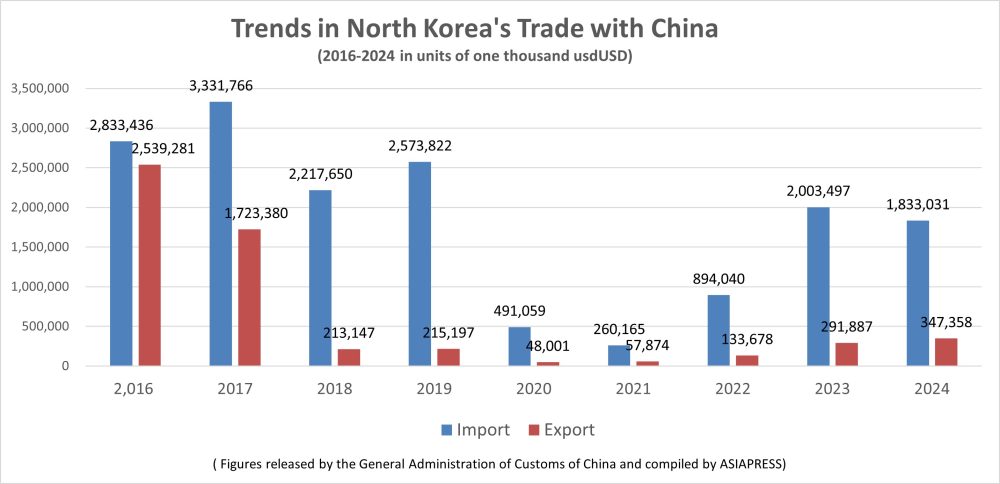
The donju, already weakened by international sanctions against North Korea, suffered another severe blow from the border closures that followed the COVID-19 pandemic. However, the most decisive factor was the North Korean authorities' unprecedentedly strong anti-market policies. In August 2023, ASIAPRESS sources claimed that "70-80% of donju have likely collapsed." Let's examine the specific process of the donju's decline. (JEON Song-jun / KANG Ji-won)
◆ Major Blow from COVID Pandemic and Border Closures
When the COVID pandemic began and North Korean authorities implemented a complete border closure policy, North Korea became a graveyard for the donju. As authorities blocked domestic movement of vehicles and personnel and temporarily closed jangmadang (markets), even distribution came to a halt. Markets froze, and the donju slowly withered away.

Kim Myung-ok, who defected to South Korea by boat across the East Sea with his family in October 2023, testified in a July 2024 interview with ASIAPRESS:
"During COVID, all the donju collapsed. Coastal donju had invested tens of thousands of dollars importing scallop seeds from China to start aquaculture, but then they blocked the borders. Since they couldn't export, the prices became worthless. They all went bankrupt."
North Korea's imports from China, which stood at approximately $2.57 billion in 2019 despite international sanctions, plummeted to about $490 million in 2020 when COVID intensified and borders were sealed. The border closure was enforced under the pretext that imported goods could carry the virus.
While the donju, who made money through trade and distribution of imported goods, suffered another major blow, the Kim Jong-un regime was able to implement these measures without significant resistance by citing COVID response as justification.
 However, this was actually the beginning of full-scale anti-market policies disguised behind the curtain of disease prevention. COVID-19 presented a golden opportunity for the Kim Jong-un regime, which had been preparing a major counterattack against markets.
However, this was actually the beginning of full-scale anti-market policies disguised behind the curtain of disease prevention. COVID-19 presented a golden opportunity for the Kim Jong-un regime, which had been preparing a major counterattack against markets.

























